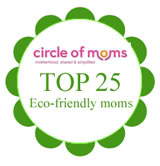Turkey terms confusing? You bet!
Things are just not right in the world. We shouldn’t have to earn a PhD in Turkey Terminology in order to find the best choice to grace our Thanksgiving table.
But while millions of American families eat turkey at Thanksgiving, few of us grow them or even know someone who does, so we have to rely on what’s available in our local grocery store. And what’s available, if you read the labels, can be incredibly confusing, especially if you want to do the best for your family and the planet (not to mention the turkeys while they’re still alive!):
Natural: Turkey containing no artificial flavor or flavoring, coloring ingredient, chemical preservative, or any other artificial or synthetic ingredient, and is minimally processed (a process which does not fundamentally alter the raw product) may be labeled “natural.” The label must explain the use of the term “natural” (e.g., no added colorings or artificial ingredients; minimally processed).
No antibiotics: The term “no antibiotics added” may be used on labels for poultry products if the producer sufficiently documents to the Food Safety and Inspection Service (FSIS) that the animals were raised without antibiotics.
No hormones: Hormones are not allowed in raising poultry. Therefore, the claim “no hormones added” cannot be used on the labels of poultry unless it is followed by a statement that says, “Federal regulations prohibit the use of hormones.”
Organic: The Final Rule for the organic standard was published on December 21, 2000, and it offers a national definition for the term “organic.” This rule details the methods, practices, and substances that can be used in producing and handling organic crops and livestock, as well as processed products.
The Final Rule specifically prohibits the use of genetic engineering methods, ionizing radiation, and sewage sludge for fertilization.
The above information is provided by the Food Safety & Inspection Service, USDA.
So there’s that. But in addition, you may have heard of heritage or heirloom. Don’t confuse the two!
While these are not USDA definitions, the American Livestock Breeds Conservancy, an organization working to preserve rare breeds and genetic diversity in farm animals (which is a good thing for people and planet as well as the animals themselves), defines heritage turkeys by the historic, range-based production system in which they are raised. Turkeys must meet the following criteria to qualify as a heritage turkey by their definition: naturally mating, long productive outdoor lifespan, and slow growth rate. For a more thorough description, see the the ALBC-USA.org website.
On the other hand, “heirloom” turkeys may be from older breeds, but can’t mate naturally, do not mature like true heritage turkeys and, in the opinion of the Heritage Turkey Foundation (which granted, may be somewhat biased), don’t taste as good.
All we can tell you is that last year, the Colwell/Colwell-Lipson families feasted on a locally grown, “organic” (not certified, but since we knew who grew it, we also knew it was), heritage turkey which hands down was the best tasting we non-vegetarians ever ate.
Believe us, this post is not the definitive repository for all things turkey, but a good place to start thinking and start the conversation before you head out to nab your bird.
What kind of turkey (or not), are you opting for this year?
Lynn Colwell and Corey Colwell-Lipson are mother and daughter and authors of Celebrate Green! Creating Eco-Savvy Holidays, Celebrations and Traditions for the Whole Family, and founders of Green Halloween®.


























